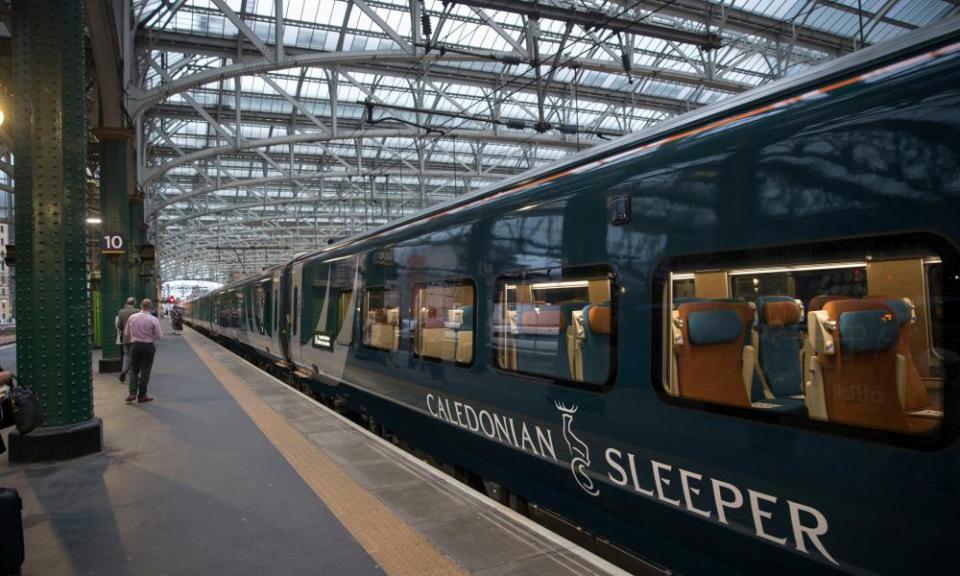Plane wrong: how your bosses should cut back on flights

Is your employer having the conversation about cutting back on flying? While activist Greta Thunberg’s emotionally charged speeches around the globe have gained headlines so, too, has her decision to shun air travel in favour of train and boat journeys, no matter how arduous.
With flying one of the fastest-growing sources of greenhouse gas emissions, more people are following Thunberg’s lead and rethinking the way they travel. But it’s not just about holidays – business trips are a big contributor to the problem, and discussions are taking place at companies up and down the UK about flying less and “clean travel” options.
But with the value of the global business travel market forecast to increase from $1.3tn (£1tn) in 2017 to almost $1.7tn by 2023, according to an Allied Market Research report issued in November 2018, will large numbers of businesses really start to rethink the need to jet across from the UK to New York to set up a deal, or fly from London to Dublin for a meeting?
The often exorbitant cost of train travel means that in cold, hard financial terms, it might be difficult to argue against, say, a £40 return flight from London to Edinburgh versus £240 on the train.
And what about long-distance commuting to work? This week’s media coverage of airline Flybe’s woes brought a reminder that many of its passengers are weekly commuters hopping on flights to and from mainland Europe.

“With more and more companies making their own ‘net zero’ pledges, business travel is bound to come under the spotlight before long,” says Cait Hewitt, deputy director of campaigning organisation Aviation Environment Federation. “We’re starting to get inquiries from the business travel-buying community (corporate travel buyers) to discuss what they should be doing about the impact of climate change on travel.”
Some companies have taken action or are working on it, though it is fair to say that when Guardian Money tried to talk to large and medium-sized companies about business flights, many didn’t want to chat.
However, some were prepared to spill the beans. London-based Lawson Conner, part of the IQ-EQ group, provides services and software to financial firms, and says it has reduced business flights by 75% over the last two years.
“I used to fly quite a lot – I’d probably take about eight flights a month, travelling to Singapore and Hong Kong,” says Gerhard Grueter, co-founder and managing director of Lawson Conner, which employs 50 people in the UK. “That’s now completely cut.”
The business has a “one person” international travel policy, where only one member of staff is allowed to attend global business meetings.
The reduction in flights has, in part, only been possible because the company has offices around the world. “If clients are being served locally, if someone wants to speak to me, I don’t need to fly to New York – it’s not necessary,” says Grueter, adding: “If I was asked ‘what did you do in your job as a senior member in a firm, about the impact on the environment?’, I want to be able to respond. We have got to act now.”
Two years ago, the engineering professional services firm WSP set itself a target in the UK to become carbon neutral by 2025. This involved tackling business flights, which have seen a 9% fall domestically, and a 16% drop overall. In 2018 it introduced an initiative encouraging non-travel and low-carbon alternatives rather than driving and flying, and banned flights under 250 miles.
“When our staff book travel online, a pop-up asks whether they need to travel or could they use Skype,” says Claire Gott, UK head of corporate social responsibility (CSR) at WSP. “Also, our admin staff have been trained to challenge any travel. The first choice is by rail.”
There’s also an internal carbon levy of £50 a flight on all domestic air travel, to be increased to £200 a trip, with this invested in CSR activities.
Sabine Zetteler, owner of communications agency Zetteler, is on a mission to reduce flights taken by her 10-strong company. Zetteler says the London-based business has clients exhibiting all over the world, so in some cases flying can’t be avoided, but for short trips and design fairs, it plans to find more carbon-efficient means.
For instance, in April 2019, five of the team travelled by train to Milan Design Week. “It took 12 hours longer and cost a few hundred extra financially, but it was liberating, bonding and important for us to try,” says Zetteler. As for this year, the company plans to visit fewer places and share the carbon offset charge for international meetings that can’t be avoided.
Organisations, such as universities, are also looking at what they can do. Sion Pickering, social responsibility and sustainability projects coordinator at Edinburgh University, says business travel accounts for a sizeable proportion of its carbon emissions. “In 2018 during term time, staff and students travelled more than 66m business miles, emitting more than 18,000 tonnes of CO2e (carbon dioxide equivalent),” he explains. “This is approximately 20% of our carbon emissions, and our third highest source after emissions from the electricity and gas we use to heat and power our campuses.”
The university has already started discussions about whether the number of travellers can be reduced, and whether additional value can be found by extending trips slightly to combine multiple engagements.
“By helping departments to understand how much they travel, we have started to increase awareness,” says Pickering. This year the university plans to introduce a series of measures to reduce emissions from business travel.
A perk of taking the train: two extra days’ holiday
Some businesses have signed up to Climate Perks, a new scheme that works with climate-conscious employers to offer at least two paid “journey days” per year to staff who travel on holiday by train, coach or boat instead of flying. These are for people to use to travel to and from their holiday destination. More than 30 companies have signed up so far, according to the charity Possible (formerly known as 10:10 Climate Action), which launched the scheme.
These are for people to use to travel to and from their holiday destination. Crucially, these days don’t come out of your annual leave allocation – so if, say, you get 25 days’ holiday a year, you get those extra travel days on top of that.
More than 30 companies have signed up so far, according to the charity. In return, employers receive accreditation “in recognition of their climate leadership”.
“When it comes to cutting plane travel, the solution must be based in behavioural and social change because there is no real technological solution for cutting aviation emissions,” says Emma Kemp at Possible.
Although it recently signed up to Climate Perks, the ethical insurer Naturesave launched a similar initiative more than a decade ago for trips to Europe. “In recent years we have seen it grow,” says the marketing manager, Nick Oldridge. “Over the period we have run the policy, a quarter of staff have taken advantage of the benefit each year, resulting in an additional one or two days’ annual leave per person.”
While he concedes there is a cost associated with this, there are undoubtable benefits. “Those who use the scheme have reported they enjoyed their holidays more and rediscovered the pleasure of travel,” he says. “They are also proud of being able to demonstrate to their friends and relatives that they have an employer who takes environmental issues seriously.”
One employee taking advantage of the scheme is finance manager Abha Wells, who has used it for trips to Scotland and Belgium during the past two years. “Not only was it better for the environment, but we were also able to take our bikes, which made it even better. Now the climate emergency has become so critical, I am planning to take more trips overland using the extra days from our policy.”
While carbon offsetting is offered by airlines and others, Cait Hewitt of Aviation Environment Federation says this isn’t the answer to reducing emissions. “Offsetting might look like a cheap and easy response to the climate change impacts of business flights, but while a well-run scheme will do some good elsewhere in the world, it does nothing to solve the problem of aviation emissions.”
“There are no green flights on the market today. Rather than offsetting, businesses should look hard at how to cut back on flight numbers, change staff expectations about flying, and then maybe put the money they have saved towards research and development into genuine solutions for zero carbon aviation, whether that’s zero carbon fuel, electric aircraft, or technologies for capturing and locking away CO2 from the air once it’s emitted.”
Some of the things businesses and employees can do

• Think about whether it’s essential to travel. Could you join the meeting by conference or video call? Is there someone who lives or works nearer to the event or meeting who could go?
• If you have to go, could you get there by train? Any extra costs compared with flying can sometimes be offset by travelling on an overnight train and avoiding the cost of a hotel room.
• If you do fly, travel economy (a business class seat has around three times the CO2 impact compared with economy, as a result of the extra space and weight it occupies, says the Aviation Environment Federation).
• Try to choose the most efficient airline for the route. As well as showing you prices, websites such as Skyscanner display which flights are “greener” because they emit less CO2. This calculation is based on aircraft type, capacity and number of stops.
• Don’t encourage extra flying by letting staff keep air miles. Find other ways to provide rewards.


